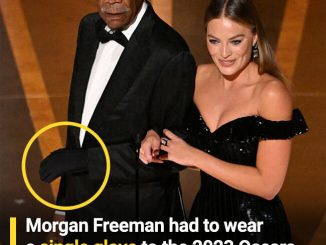Hunter McGrady is known as Sports Illustrated Swimsuit’s “curviest model ever.” But this milestone and other achievements weren’t enough to keep haters away. Now, she speaks about how she deals with them.
Meet Hunter McGrady.
Hunter McGrady is an American model and body positivity advocate renowned for her work in the fashion industry. Her breakthrough moment came in 2017. She was selected through an open casting call to appear in the Sports Illustrated Swimsuit Issue, making her debut as one of the magazine’s curviest models ever. This achievement marked a significant step in her career and highlighted her commitment to challenging conventional beauty standards.
McGrady’s influence extends beyond modeling. She is a vocal advocate for mental health, self-love, and body diversity. Through interviews, social media, and public appearances, she encourages people to embrace their bodies and reject unrealistic societal expectations.
The pivotal moment of her life.

McGrady’s career began as a model at the age of 15, during which she faced significant pressure to maintain a size two, leading to personal struggles with body image and self-acceptance. In a recent interview, she remembered that once she grasped the fact that being a slim fit wasn’t going to be her journey, she let herself live and be happy. Over time, she transitioned to plus-size modeling, finding her niche and voice in promoting body positivity and inclusivity within the fashion world.
It wasn’t an easy journey.

The Los Angeles native admitted that the road to acceptance was long, but therapy played a crucial role in her journey to self-love. She emphasized the importance of appreciating what our bodies can do rather than focusing on societal pressures to look a certain way.
“I think what Sports Illustrated is doing — celebrating all bodies — is so powerful. They’re doing the work. Especially right now when we’re entering this weird era, celebrating thinness,” McGrady noted.
But she keeps receiving negative comments about her body.

“No matter what you do, you’re going to get hate,” McGrady shrugged. “But you’re also going to get love. Negative comments or anybody who shames someone about their body? That’s so boring. Get something better to talk about.”
She emphasizes that criticism and negativity are inevitable, but so is support and appreciation. For McGrady, the act of body-shaming is tiresome and unproductive, reflecting more on the critic than the person being targeted. She encourages people to find more meaningful and positive topics of discussion, shifting focus away from superficial judgments.
Her message to plus-sized women.

McGrady stresses that self-love is the foundation of true confidence and resilience. Despite setbacks and challenges, the continuous effort to nurture self-love is crucial. Without it, external achievements and changes hold little significance.
“Confidence is not linear. It’s a climb,” she mentioned.
As the 60th-anniversary issue of Sports Illustrated Swimsuit hits newsstands, McGrady’s cover serves as a powerful reminder that beauty comes in all shapes and sizes. Through her journey and advocacy, she continues to inspire and promote a more inclusive and accepting view of beauty in the fashion industry and beyond.
Dad Gets Massively Shamed for Putting Leashes on His 5-Year-Old Quintuplets

These days, raising kids can be challenging in and of itself. Not only must young parents endure the judgments of their relatives, but they also have to endure internet strangers making random remarks about their parenting styles.
Jordan Driskell, who has five quintuplets, is a young father. By coincidence, his quintuplets are five years old. As you can imagine, raising five identically aged children can be extremely demanding. particularly when a child is five years old and curious and enjoys exploring.

Dad Jordan Driskell, 31, made the decision to come up with a novel solution to his issue. In order to keep his boisterous young children under control when they are out in public, dad purchased child-sized leashes.
Driskell previously used a six-seat stroller for their large family. But since the kids would be bothered when inside, that got old very soon. It was also quite difficult to transport the stroller anywhere.
When the family goes out, this enables the young children walk and explore their surroundings without their dad losing sight of them or control of them, keeping them safe!

A video that Driskell uploaded of the family’s trip to the aquarium sparked a lot of criticism aimed at the parents. With over 3 million views, the video of the children wearing leashes went viral. Numerous others expressed their opinions that the kids shouldn’t have been leashed because they weren’t animals.
“Don’t have so many kids if you can’t handle the pressure,” said one commenter.
Some mockingly advised, “Can’t you just properly train your children?” Talk to them about the dangers of running away.

Expert in parenting and teenage development, Dr. Deborah Gilboa, held a different view. She doesn’t believe that wearing a leash will turn your kid into an animal. Naturally, using a leash is a much better option than staying at home if that is your only option!
According to Dr. Gilboa, a leash is an excellent tool for controlling younger kids or kids with neurodiversity in public settings. She did add, though, that it could be problematic if a neurotypical child is not walking freely by the time they are eight or nine years old and has not yet acquired listening skills.
By then, parents ought to be able to interact with kids verbally rather than through the use of devices like leashes.

Without unwarranted criticism from society, parents ought to be allowed to parent in the manner that best suits them.



Leave a Reply